It’s now Saturday morning in NYC and Telluride already seems like old news. Venice has just announced its prizewinners (The Master obv. – or not so obv.) and Toronto is in full flow. Still, I have one more day of my Telluride Film Festival experience to record and I’d better get it down before I forget.
The Monday of Telluride is a catch-up day. Most of the celebrities and honourees have departed and a lot of the programme is announced the night before, extra screenings of popular titles (or at least the films that most people were turned away from. This is an excellent plan and I was able to fill in quite a few of my gaps (though not all).
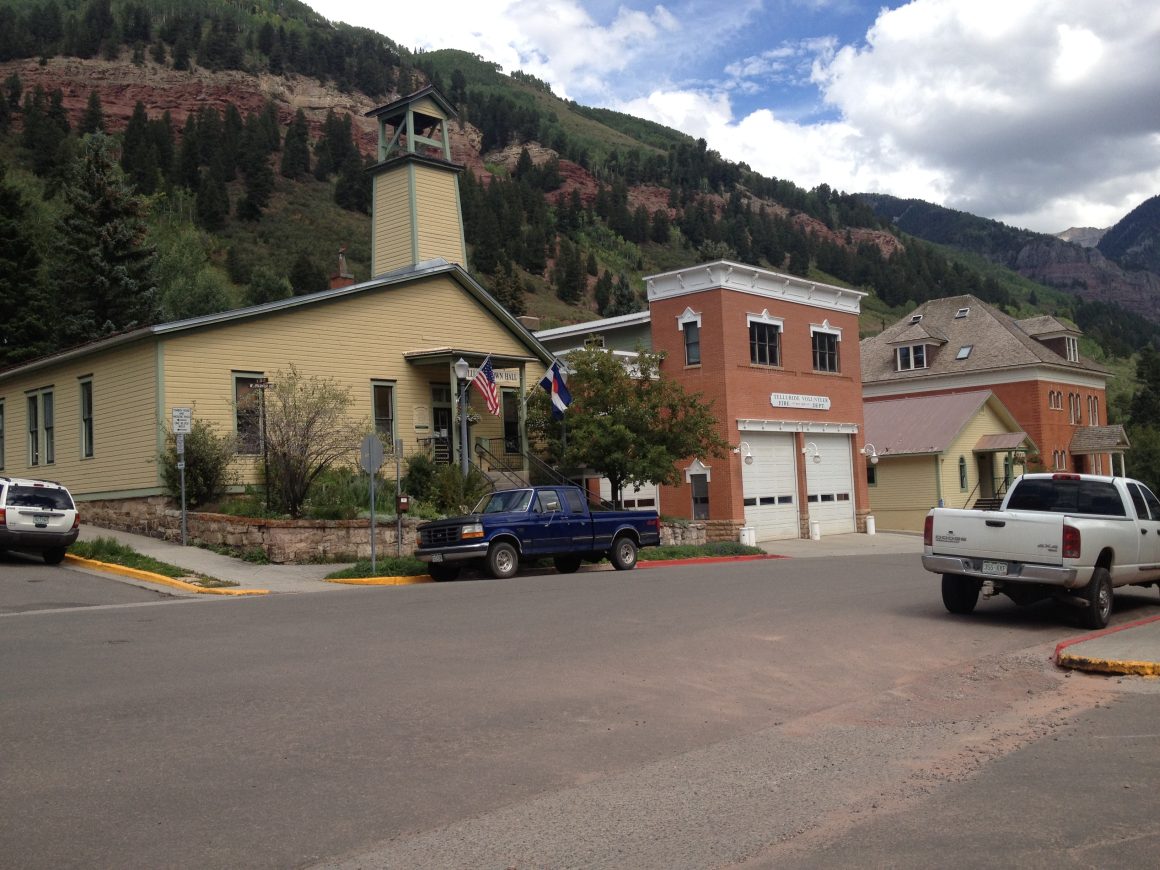
Telluride Volunteer Fire Station.
The first screening was the Q&A session for Sarah Polley’s new documentary Stories We Tell, a film that had generated quite a bit of buzz over the weekend. Polley – with gorgeous six-month-old daughter in harness – briefly introduced a film that at first intrigues, then surprises and finally delights. She has done a marvellous job of making what might have been an indulgent piece about her own personal dramas into something universal. I sincerely hope this gets a decent New Zealand release so I can review it at more length but I’m also going to hold back the details of the story so readers without access to Google might come to it as unsullied by spoilers as possible.
Mid-morning we all got another tremendous feed courtesy of the festival at the Town Park Picnic. This was a splendid occasion and I even bumped into Richie Meyer, the academic and film festival devotee who got me in to this thing in the first place. Telluride is like that.
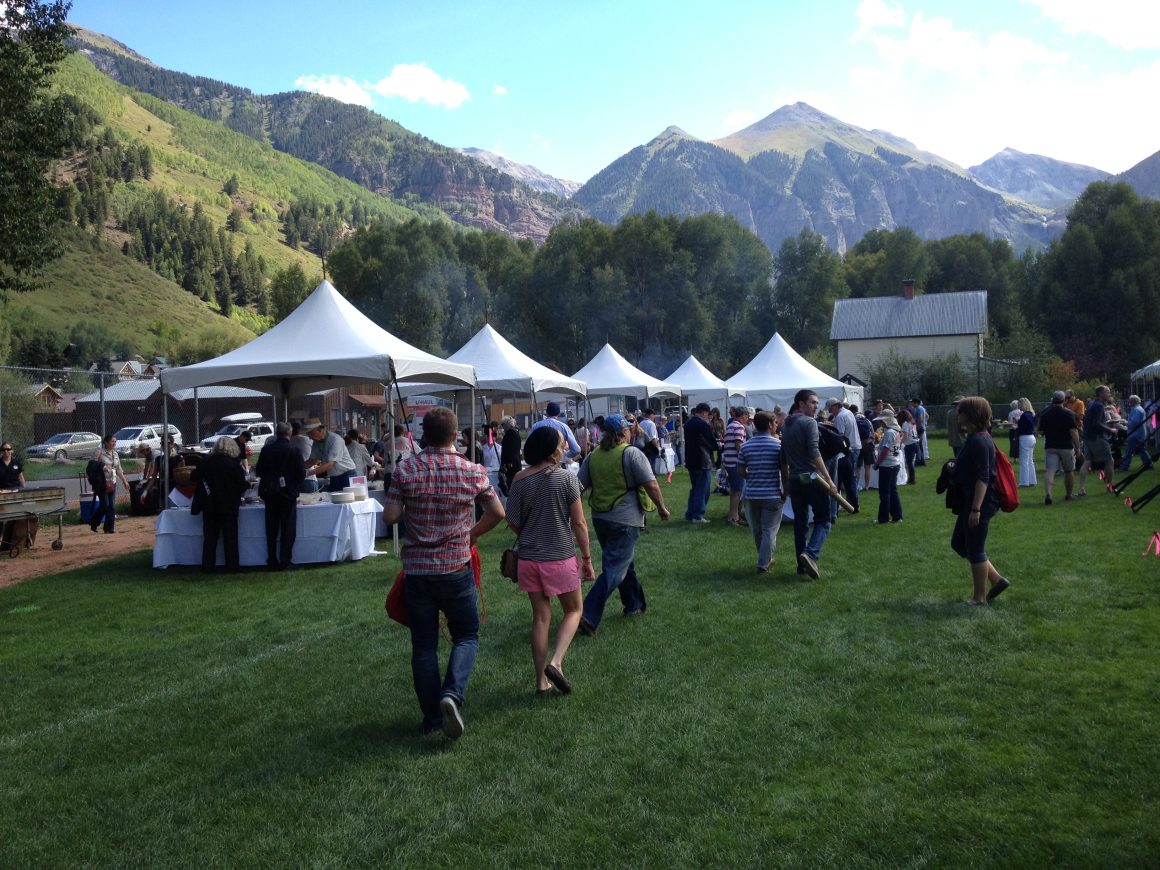
Labor Day Picnic warms up.
At 3.00pm I got to see Roger (Notting Hill) Michell’s Hyde Park on Hudson – at least the first hour and twenty minutes, as I wanted to finally get in to Frances Ha at 4.45. This is an aspect of these sort of festivals that I find unsatisfactory – the need to skip out on films before the end. Hyde Park is the kind of soft-arthouse that usually goes down extremely well in NZ but the comparisons with The King’s Speech will be unfortunate and unhelpful.
Bill Murray – in his rare acting mode rather than his being “Bill Murray” mode – plays FDR, a seemingly reluctant president, recovering from the strains of office at his mother’s upstate estate, seeking company from all the women around him apart from his wife Eleanor (Olivia Williams). One of these companions is “fifth or sixth cousin” Margaret Suckley (Laura Linney) on whose recently discovered diaries this story is based.
Into the mix come the King and Queen of England (stammering Bertie and staunch Elizabeth) to try and persuade America to support them in the now inevitable war in Europe. It’s a real pleasure to see Murray in character for a change and Linney always breathes full body into the women she plays, but the film seems a trifle thin. Maybe that last twenty minutes made a difference?
Frances Ha also seemed thin while I was watching it but has actually haunted me a lot more than other films I saw this weekend, tricky little blighter. Greta Gerwig (also co-writer) plays an unsuccessful dancer trying to make it in New York and having her natural optimism challenged at every turn. A kind of comedy-of-hipster-manners, it evidently is being compared to the TV series Girls (which I haven’t seen) but seems to stand well-enough alone in my opinion.
The luminous black and white photography (looking like early Jarmusch) makes New York seem other-worldly, which is an odd thing to be typing while I’m actually sitting here in New York. Like I said, I’ve found myself thinking about this one a lot more than I expected and I’d like to see it again. Will it get NZ audiences? Maybe, but would go down really well at something like the Showcase.
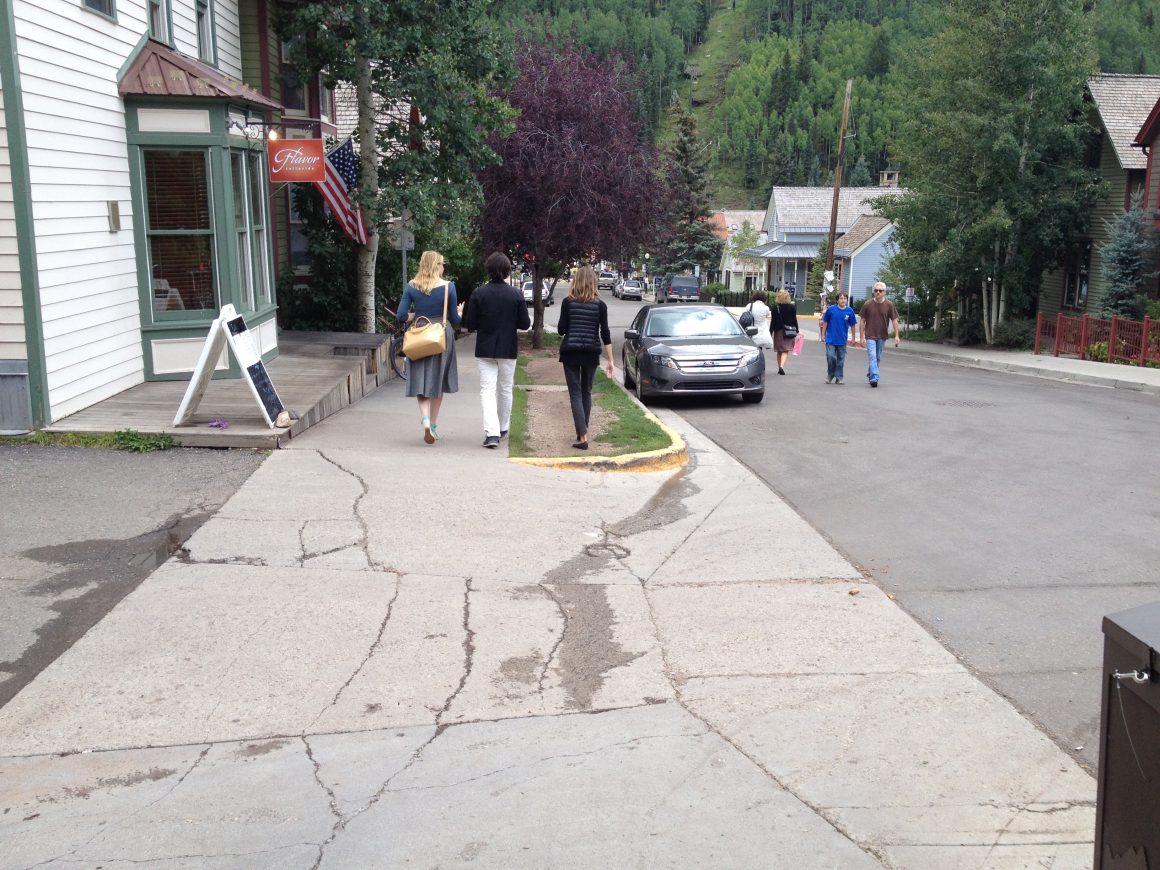
Greta Gerwig, Noah Baumbach and a third party walking towards the gondola. I’ll never make a paparazzi.
Final film for my festival was also one of the titles with the biggest buzz. At 8pm I managed to squeeze myself in to Telluride’s only purpose-built cinema, The Nugget, for Israeli documentary The Gatekeepers. The Nugget is a slightly run-down but charming little cinema (its single bathroom for both men and women arguably not contributing to its charm), the cramped legroom and uncomfortable seats reminding me of the back section at the Paramount in Wellington.
The Gatekeepers is an incendiary documentary about the Israeli internal security service Shin Bet, featuring exclusive interviews with half a dozen forthright former directors of the organisation. Shin Bet is responsible for protecting the state of Israel from terrorist action from the occupied territories, the settlements and within its own official borders. Threats include the obvious (The PLO and Hezbollah) and the less obvious (demented orthodox rabbis trying to bring on the end of the world as we know it) and the details of some of the operations for and against Israel are both illuminating and horrifying.
These guys are professional security forces with years on the front lines, following orders from politicians who they have real difficulty respecting. The conclusions they – all – reach should have massive repercussions for Middle East policy and you can expect The Gatekeepers to be newsworthy up to an after the inevitable Academy Award nomination. It doesn’t advance the medium at all – pretty straight talking head and archive footage – but it’s extremely well done and the access and candour of the interviews is outstanding. This year’s The Fog of War, and arguably even more important.
And just like that, it was all over. Not for the people of Telluride though because the festival runs three days of extra evening screenings so locals and volunteers who missed out can still catch up. This is a festival that doesn’t start when it says it’s going to start and doesn’t finish when it says it’s going to finish.
As for me, after a day of recovery, I drove back to Denver on Wednesday (with Brian, a festival PA who was returning to New Orleans and his industry freelance career – thanks for the company and the driving, Brian) and hung out overnight at DIA until my flight to New York.
You will be please to know that I won’t be doing daily NYC updates – what can a wide-eyed rube such as myself really add to the testimony that already exists about this wonderful place? – but I would like to take a couple of paragraphs to try and sum up my Telluride experience.
This trip to Telluride has been the most transformational single experience of my life. The place does that to you. The way the festival works is to force you to meet people, force you to connect, and that was just what I needed. I also needed to learn not to keep trying to make things happen but to just let things happen. Will the lesson stick? Who knows, but I will forever be aware of the difference now.
I got so much good feedback on the book idea that I now have to do do it. That means I won’t be back to Telluride until at least 2015 (book launch?) and that causes me real heartache. I think that one of the reasons I have avoided travel in the past is the idea of leaving people and places and the knowledge that I will never see them again. I hate that sort of finality – it’s another example of my refusal to acknowledge my own mortality, I think – and I can really only deal with leaving Telluride by assuming that one day I’ll be back. It’s the only way to make it bearable.
Is it about the films, the people or the place? It’s a difficult question. Bragging rights over films you’ve seen only last until the next lot of releases crashes in like waves on a beach and, besides, that’s a pretty shallow reason for doing anything. But, special as the place is I don’t think I’d go back outside of a film festival. I don’t dig that outdoors stuff enough. But the vibe, my goodness, the vibe.
Did I do it right? Does it matter?

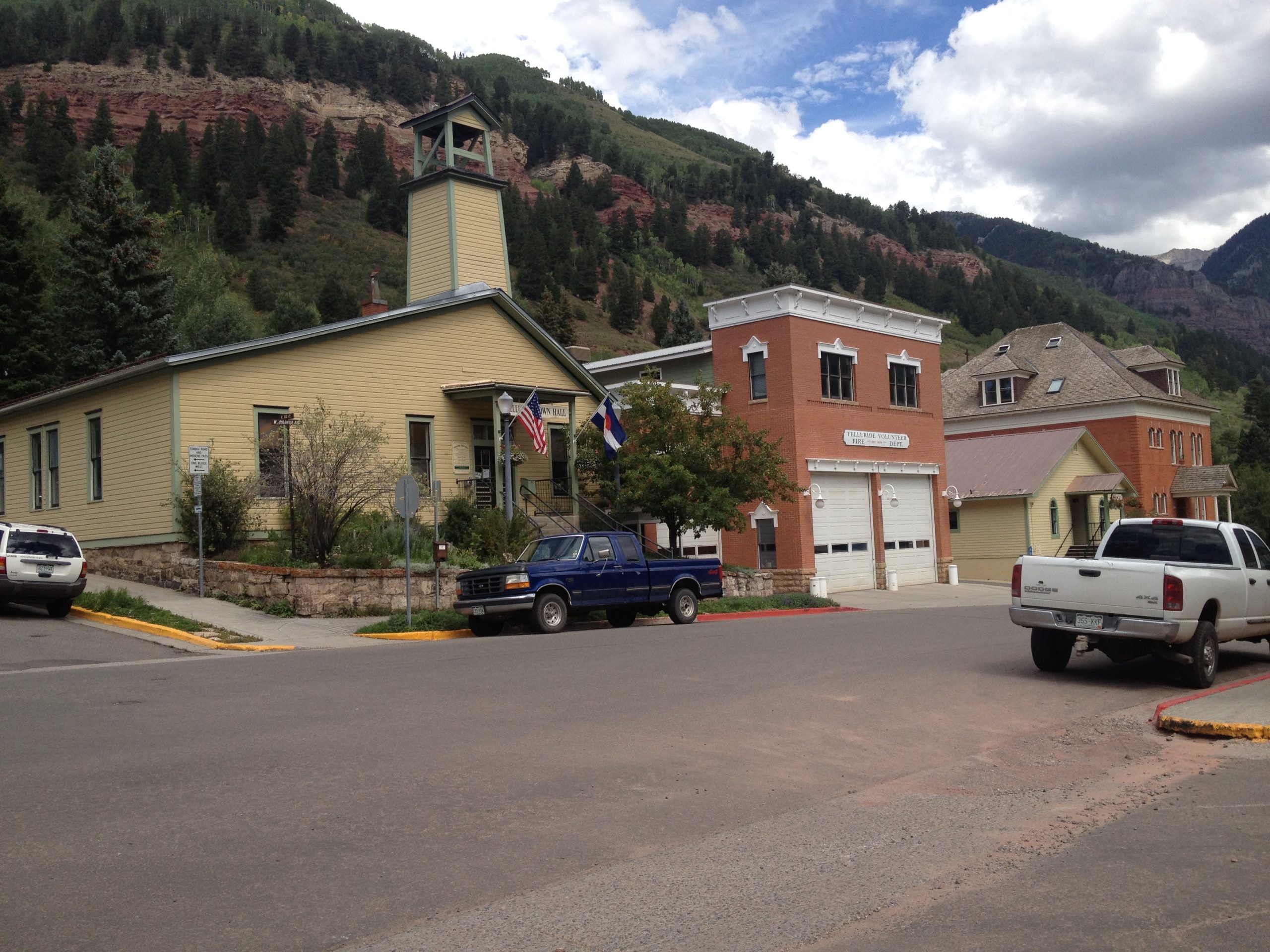
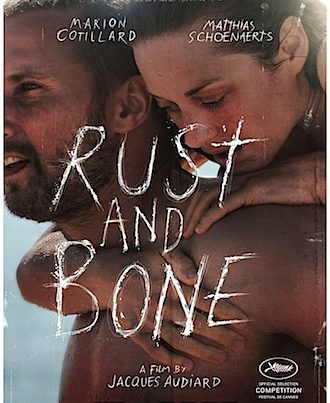
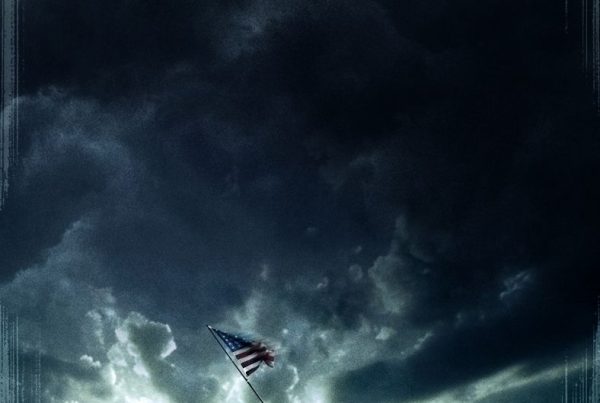
So glad you experienced TFF. I’m a Kiwi who has lived in Telluride for over 20 years (with jaunts back to the motherland) who came to town not understanding the love of film or the fine art of active relaxation. This was quickly altered with less than a year of living here. It is a community, that amongst other things, loves film at a very deep level combined with intense physical activity. You must come back and experience Telluride Mountain Film at the end of May (www.mountainfilm.org) for the other end of the spectrum – much less black clothing and many more Everest climbers. MountainFilm actually went to Queenstown for a few years in the 90’s but that didn’t continue for long. And Ridgway is spelt without an ‘e’. Imagine that. Happy trails.
Thanks for the comment and the tips. I will be back, I just don’t know when.